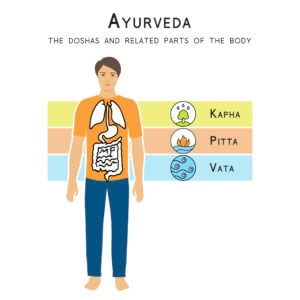The Role of Ayurveda in Stress Management and Mental Clarity
The Role of Ayurveda in Stress Management and Mental Clarity
Blog Article
Discover the Profound Benefits of Ayurveda and Enhance Your Day-to-day Live
Ayurveda, an ancient system of medicine stemming from India, provides a detailed structure for boosting health with its all natural principles. As we discover the details of Ayurveda, it becomes apparent that its methods hold the potential to transform day-to-day routines right into rituals of health and wellness and mindfulness, raising the question of just how one could start to incorporate these ageless principles right into modern life.
Comprehending Ayurveda Principles
Although Ayurveda is often perceived as a different recovery system, its principles are deeply rooted in an alternative understanding of health and wellness. Central to Ayurveda is the belief that optimal health and wellness is attained through an equilibrium of spirit, mind, and body, stressing the interconnectedness of these components. This old practice acknowledges that each private possesses a distinct constitution, or "prakriti," which influences their physical, psychological, and psychological wellness.
Ayurveda supporters for personalized methods to wellness, incorporating dietary standards, lifestyle adjustments, and natural solutions customized to specific requirements. It motivates the usage of natural treatments that advertise self-healing and boost vitality. The practice also highlights the importance of preventative treatment, focusing on preserving equilibrium as opposed to merely treating disease.

The 3 Doshas Explained
An essential element of Ayurveda is the idea of the 3 doshas, which are vital powers that regulate emotional and physiological processes within the body. These doshas are Vata, Pitta, and Kapha, each representing unique combinations of the five components: earth, water, fire, air, and room.
Vata, characterized by air and space, is responsible for activity and communication. It governs bodily functions such as nerve, respiration, and blood circulation impulses. Individuals with a primary Vata dosha often tend to be imaginative, energetic, and versatile, yet may additionally experience anxiousness and uneasyness when imbalanced.
Pitta, related to fire and water, embodies improvement and metabolism. This dosha regulates metabolism, body, and food digestion temperature - Ayurveda. Those with a solid Pitta visibility are often concentrated, passionate, and driven, yet they may come to be prone to irritability and inflammation when out of equilibrium
Kapha, formed by earth and water, gives structure and security. It is linked to growth, resistance, and lubrication within the body. People with a dominant Kapha dosha are usually calm, nurturing, and client, however they may fight with sleepiness and accessory if their power is out of balance.

Recognizing these doshas is necessary for achieving harmony in both body and mind.
Benefits for Physical Health And Wellness
Numerous advantages for physical wellness can be originated from the concepts of Ayurveda, which highlights a holistic technique to health. By concentrating on the equilibrium of the three doshas-- Vata, Pitta, and Kapha-- Ayurveda advertises optimal performance of the body. This personalized strategy enables individuals to tailor their way of life, diet, and therapies according to their distinct informative post constitution and present discrepancies.
One considerable advantage of Ayurveda is its emphasis on preventative care. By incorporating dietary referrals, herbal supplements, and way of living techniques, Ayurveda seeks to preserve health instead than just dealing with ailment. This positive position can boost immunity and reduce the danger of chronic illness.
Additionally, Ayurvedic techniques such as yoga and meditation contribute to enhanced physical vitality and adaptability (Ayurveda). Using natural herbs and solutions can alleviate common ailments, enhance food digestion, and boost detoxing procedures. Regular Ayurvedic therapies, such as Panchakarma, are created to renew the body and clean, fostering general physical health
Eventually, Ayurveda encourages a well balanced way of living, advertising not just physical health yet additionally a much deeper connection in between mind, atmosphere, and body, resulting in continual well-being.
Enhancing Psychological Well-Being
The alternative approach of Ayurveda prolongs past physical health, substantially improving psychological wellness too. This old system of medication stresses the equilibrium of the body, spirit, and mind, cultivating emotional durability and psychological quality. Central to Ayurvedic ideology is the idea of doshas, which are crucial energies that influence individual constitution and psychological states. By comprehending one's dosha, people can tailor their lifestyle and nutritional choices to advertise consistency within.
Ayurveda uses numerous strategies to support mental health and wellness, consisting of organic solutions, reflection, and yoga exercise. Adaptogenic natural herbs such as Ashwagandha and Brahmi are known to minimize anxiety and boost cognitive feature, while everyday meditation methods improve mindfulness and psychological security. Additionally, yoga functions as an effective device to relieve stress and anxiety and promote inner peace, integrating breath control and stances that align the body and mind.
Furthermore, Ayurveda urges a balanced regimen, emphasizing adequate pop over here sleep, beneficial meals, and stress and anxiety administration strategies. By cultivating self-awareness and motivating a connection to nature, Ayurveda cultivates a resistant mind, ultimately resulting in improved mental health and a much deeper feeling of satisfaction in every day life.
Incorporating Ayurveda Into Life
Incorporating Ayurveda right into life can be a transformative trip towards alternative well-being. This old system of medicine stresses equilibrium in the body, spirit, and mind, using sensible tools for improving wellness and vitality. To begin, people can assess their special dosha-- Vata, Pitta, or Kapha-- to tailor lifestyle choices that straighten with their constitution.
Including Ayurvedic concepts starts with conscious eating. Consuming seasonal, locally-sourced foods that fit one's dosha advertises digestion and energy levels. Furthermore, practicing day-to-day routines, or dinacharya, such as waking early, oil drawing, and meditation develops a basing structure for health.
Organic treatments, assisted by an Ayurvedic practitioner, can additionally sustain details health issues. Incorporating yoga and breathing workouts motivates physical versatility and psychological quality.


Verdict
Including Ayurveda into everyday life uses a detailed structure for attaining alternative health and well-being. By comprehending specific doshas and their influence on psychological and physical wellness, individuals can tailor their way of life options effectively.
Central to Ayurveda is the idea that optimal health is accomplished through an equilibrium of mind, spirit, and body, highlighting the interconnectedness of these components.Ayurveda supporters for tailored approaches to wellness, incorporating nutritional standards, lifestyle adjustments, and natural treatments customized to specific requirements.Additionally, Ayurveda emphasizes the function of the setting in wellness, acknowledging that outside elements, such as periods, climate, and way of life options, can affect a person's health.The alternative approach of Ayurveda prolongs past physical health and wellness, significantly enhancing psychological wellness.Integrating Ayurveda right into day-to-day life uses a thorough structure for accomplishing all natural health and well-being.
Report this page